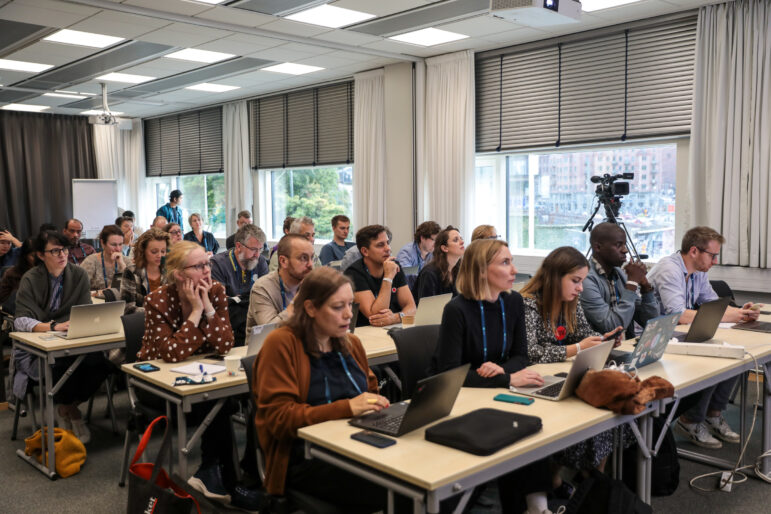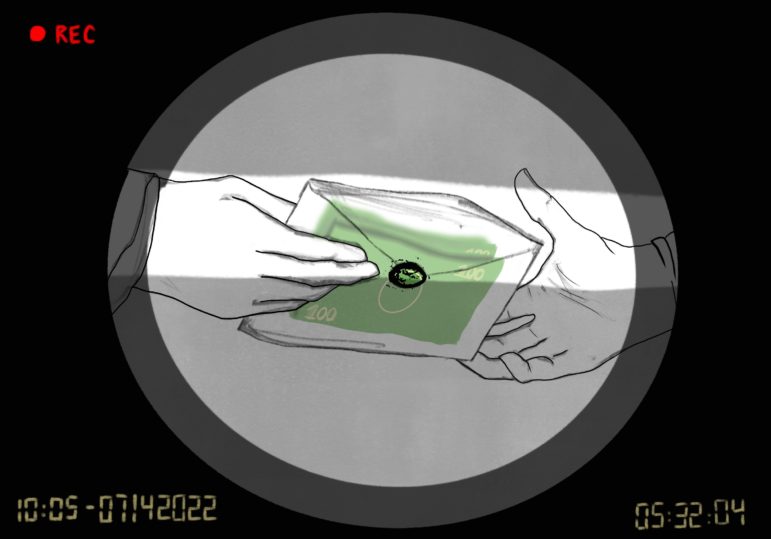

Image: Shutterstock
Embracing Failure: The Importance of Learning from Your Mistakes in Open Source Reporting
Read this article in
The open source reporting and intelligence community is full of extremely talented people. There is an almost daily supply of jaw-dropping investigations, deep analysis of very complex topics, and coordinates of photos or videos which, at first glance, appeared untraceable.
It is nearly impossible to not be in awe of these people. How can any of us mortals even hope to reach their level? Surely they were just born brilliant. But they were not. At some point they were just getting started. And they failed. A lot. They still do. And that is what makes them great.
Small amounts of failure in the OSINT field are inevitable, and somewhat expected. Perhaps an investigation that never saw the light of day because a crucial piece of evidence was missing, maybe an image or video never geolocated, or an identity never unveiled. You gave it your best, but your best was not enough, and that is OK (for now). It is easy to fall prey to feelings of inadequacy, frustration and, on occasion, self pity. But that won’t help you.
So let’s look at some ways in which acknowledging and facing your own shortcomings can, and will, help you become a better open source analyst or investigator.
The Danger of Complacency: How Failure Forces Us to Verify Every Step
I have lost count of how many times I believed I was on the right path, meticulously following the breadcrumbs of my investigation, only to suddenly hit a wall. What I expected to find was nowhere to be found. Something was not adding up.
At that stage it is crucial to step back and reevaluate all the steps that led us there. Somewhere along the line, we made a mistake and it is much more challenging to identify and correct that mistake later in the investigation, than when we first encounter it.
Therefore it is imperative to get into the habit of scrutinizing all your data as you progress through the investigation. Nothing should be taken at face value. Your job is to double and triple check every breadcrumb, so that when you arrive at that final conclusion, you are absolutely confident in your findings.
A good OSINT analyst does not cut corners. These small failures serve as reminders to remain vigilant, at every stage of an investigation. This brings us to our second item on the list. Overconfidence.
The Illusion of Certainty: How Failure Curbs Overconfidence and Improves Analysis
When we refine our ability to analyze every breadcrumb, our confidence in spotting misinformation, avoiding biases, and reaching informed conclusions naturally grows. This increased confidence can be good on its own, but it is a dangerous pitfall in OSINT.
Every so often you will still feel like you did everything right, you double-checked everything, yet still you hit that wall. It happens to all of us, and it is a gentle (and private) reminder that we are not infallible. This type of failure is instrumental in keeping OSINT analysts grounded. You do not want to become someone who proclaims to hold the keys to the truth. No good OSINT analyst will claim to have it all figured out, and those who do are only fooling themselves.
The allure of certainty is very seductive, but remember: it is an illusion.
Staying Sharp: Embracing Failure as a Tool for Self-Improvement
No matter how skilled you become, there is always someone, somewhere out there, who will make you feel unaccomplished.
When you start your OSINT journey you will encounter many impressive professionals. They are everywhere. You will likely aspire to be at least as good as they are. Perhaps you may even want to be better than them. I certainly did. I told myself: “One day, I will beat this person. I will do it faster, and I will do it better.” I had a very clear goal in my mind.
But do you know how many of those people I actually beat over the past years? Not a single one. Because they were not waiting for me to catch up. They were on their own journey, perhaps striving to surpass or compete with other people they felt were more accomplished than themselves.
This failure to be better than others compels us to continue improving, to further develop our skills, to persist in our quest for excellence. Eventually you will realize that you are no longer competing with others; you are competing with your past self. And that is an amazing catalyst for self-improvement.
Conclusion
Working in the open source field means being immersed in an endless stream of data. You learn to navigate the sea of content, verify everything, and piecing the puzzle together. However, there will be days when you will fail. Despite your best efforts, nothing will work. You may feel like perhaps OSINT is just not for you. Those days come and go, but it is how you deal with them that will make a difference in what type of professional you become.
Failure is not something to fear, but it is something to tame. We must anticipate it, embrace it, and use it for personal growth. Those who shy away from failure are condemned to stagnation. And there is no place in (good) OSINT for them.
This story was originally published on this site, and is republished here with permission, with light edits for style. You can also watch a video version of the original story.
 Sofia Santos is a senior OSINT analyst and team leader at the Centre for Information Resilience, where she monitors, analyses, and investigates human rights violations, armed conflict, and terrorist activity within a specific area of the globe. She was born in Portugal, but currently lives in the UK.
Sofia Santos is a senior OSINT analyst and team leader at the Centre for Information Resilience, where she monitors, analyses, and investigates human rights violations, armed conflict, and terrorist activity within a specific area of the globe. She was born in Portugal, but currently lives in the UK.









